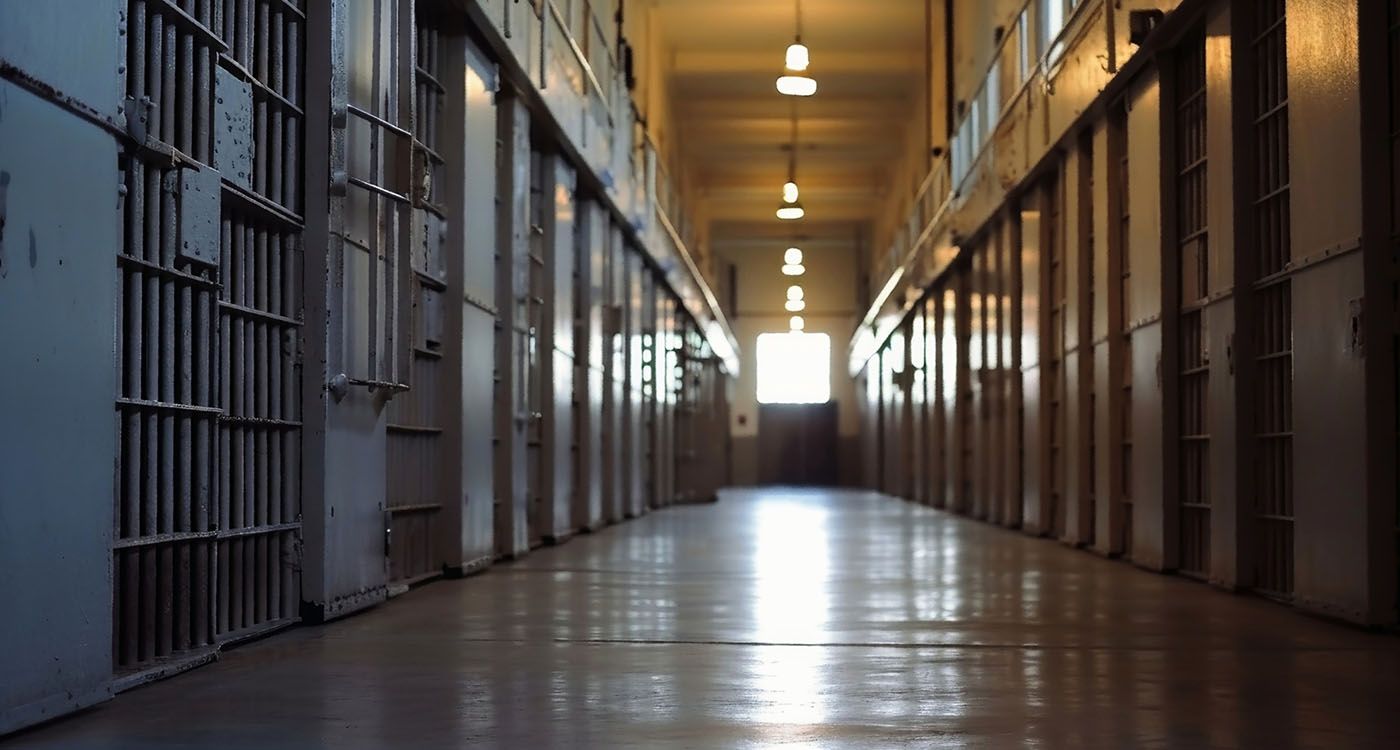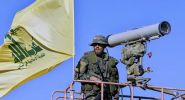
Although the issue was not explicitly mentioned during the joint press conference between Syria’s new leader, Ahmad al-Sharaa, and Lebanon’s caretaker Prime Minister, Najib Mikati, the matter of Syrian detainees in Lebanese prisons – an intersection of humanitarian, judicial and political concerns – was reportedly discussed during their meeting in Damascus on Saturday.
At the same time, families of “Syrian rebels detained in Lebanese prisons” held a symbolic rally in Damascus, calling for their release.
Mikati’s official visit to Syria, prompted by an invitation from Sharaa following their January 3 phone conversation, comes in a context rife with political undertones. According to well-informed sources, Syria’s new leader has already advocated for the release without trial of Islamist prisoners held in Lebanon, many of whom are accused of affiliation with terrorist organizations, particularly Hay’at Tahrir al-Sham (HTS). Sharaa is the former leader of HTS, which the United States classifies as a terrorist organization.
The question of releasing Islamists detained for alleged ties to terrorism without trial inevitably raises the broader issue of a “general amnesty” for all prisoners in Lebanon. This all-encompassing approach has repeatedly hindered progress, leading to deadlocks year after year.
Calls for general amnesty often align along sectarian lines, with each community advocating for its members’ benefit. This has consistently resulted in impasses. Christian communities, for instance, demand amnesty for Lebanese accused of collaborating military or economically with Israel, who fled the country following the Israeli withdrawal from South Lebanon in 2000. These individuals face prison sentences upon return and are unable to register their children in Lebanon’s civil registry.
While awaiting parliamentary debate on potential amnesty legislation, Mikati called for the urgent formation of a prison inspection committee. It would include a judge from the Court of Cassation, an Internal Security Forces (ISF) officer and a representative of the Red Cross.
Overcrowded Prisons
Prison overcrowding is a major argument for advocates of amnesty. Across the board, stakeholders agree on the severity of the issue. According to Colonel Bilal Omar, Lebanon’s Director General of Prisons, the country’s incarceration facilities operate at an alarming 300% capacity, as he told This is Beirut. This problem has been exacerbated by the destruction of six prisons during the recent Israel-Hezbollah war (September-November 2024), including facilities in Nabatieh, Marjayoun, Tebnine, Bint Jbeil, Tyre and Baalbeck.
“Overcrowding is one of the harshest aspects of incarceration,” noted Father Najib Baaklini, the President of Justice and Mercy, an Antonine organization focused on prisoner rehabilitation and reintegration.
A recent report from the Beirut Bar Association’s Prison Committee documented 8,402 prisoners in Lebanese jails, with 83% awaiting trial – a figure widely criticized as unacceptable for a country claiming democratic principles.
President Joseph Aoun indirectly addressed this issue in his inaugural speech, pledging judicial independence and faster trial proceedings – essential steps to alleviating the overcrowding crisis.
Colonel Omar estimates there are 1,800 Syrian inmates in Lebanese prisons, but only 330 have undergone trial, making them eligible for extradition under existing agreements. Once extradited, the new Syrian regime will decide their fate, which could involve completing their sentences or being released. However, for some, release hinges on their prior compensation to victims.
The figure of 83% of detainees awaiting trial underscores the urgency of judicial reform. Delays in trials are partly attributed to Lebanon’s economic crisis. For instance, a modern courtroom built in Roumieh Central Prison to expedite trials remains rarely used due to inadequate incentives for judges.
The government formed under President Aoun is expected to address these pressing issues. Proposed reforms include shortening the judicial year from nine to six months and differentiating between drug users and dealers – or between small-time and large-scale traffickers – in sentencing. These measures could significantly reduce overcrowding.
Among the Islamist detainees in Lebanon are fighters affiliated with factions now in power in Syria. Father Baaklini predicts that many of these detainees – whether Lebanese or Syrian – are likely to be released, particularly if their detention is based solely on affiliation with these factions. However, he emphasizes that amnesty cannot extend to those convicted of killing soldiers or law enforcement officers, or participating in terrorist acts resulting in casualties.
The prison issue remains fraught with complexities. In Roumieh Prison’s Building B, where Islamists, both Lebanese and Syrian, are incarcerated, reports suggest they have established a “pseudo-emirate,” enjoying certain privileges while imposing strict internal hierarchies.
Notable among these detainees is Sheikh Ahmad al-Assir, arrested in 2015 and sentenced to death for leading deadly clashes against the Lebanese Army in Abra, near Saida, in 2013.
In a video released last week, Assir urged the Lebanese authorities to resolve the Islamist detainee issue and called for fostering “neighborly relations” with Syria.
With the fall of Syria’s previous regime and the anticipated disarmament of Hezbollah, there is cautious optimism that long-standing sectarian tensions may begin to ease.



Comments